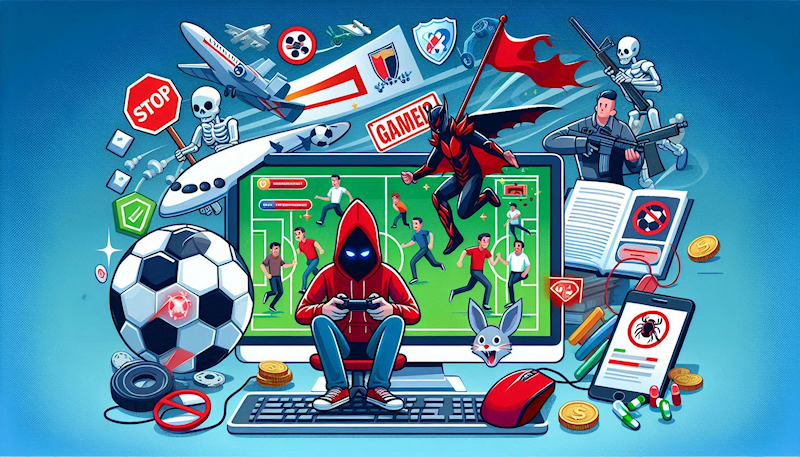 14.06.2024 - In the digital age, computer games have become a staple of entertainment for people of all ages. Among these, online web browser sport management games have carved out a niche for themselves, offering players the chance to step into the shoes of a manager and lead their team to glory.
14.06.2024 - In the digital age, computer games have become a staple of entertainment for people of all ages. Among these, online web browser sport management games have carved out a niche for themselves, offering players the chance to step into the shoes of a manager and lead their team to glory.
However, beneath the surface of these seemingly harmless games lie potential risks that can impact players’ mental and physical health, as well as their social and financial well-being.

Mental Health Risks
One of the most significant concerns is the risk of addiction. These games are designed to be engaging and often include mechanisms that encourage continuous play. Players may find themselves spending excessive amounts of time managing their teams, strategizing, and competing in leagues, which can lead to neglect of real-life responsibilities and relationships.
Moreover, the competitive nature of these games can lead to increased stress and anxiety. The desire to win and the fear of losing can create a cycle of tension and frustration, particularly when players encounter setbacks or defeats. This constant state of stress can have long-term effects on mental health, including the development of anxiety disorders.
Physical Health Risks
Extended periods of gameplay can also lead to sedentary behavior, which is associated with a range of health issues such as obesity, cardiovascular disease, and musculoskeletal problems. The lack of physical activity when engrossed in these games for hours can contribute to a sedentary lifestyle, which is detrimental to physical health.
Furthermore, eye strain and poor posture are common physical ailments among gamers. Staring at a screen for prolonged periods can cause discomfort, headaches, and long-term vision problems, while poor posture can lead to chronic back and neck pain.
Social Risks
Social isolation is another risk associated with excessive gaming. Players may become so absorbed in the virtual world that they isolate themselves from friends and family, preferring the company of their online counterparts. This can lead to a breakdown in real-world social connections and a sense of loneliness.
Financial Risks
Online sport management games often include in-game purchases or subscription models that can lead to financial strain. Players might be tempted to spend real money to gain an advantage, purchase in-game items, or access premium features. This can become a slippery slope, leading to overspending and financial difficulties.

Cybersecurity Risks
Lastly, playing online games exposes players to cybersecurity risks. Personal information can be compromised through unsecured game platforms, and there is always the threat of phishing scams and malware. Players need to be vigilant about the security of their data and the integrity of the websites they use.
Conclusion
While online sport management games can provide entertainment and a sense of achievement, it’s crucial to be aware of the potential risks. Moderation is key, and it’s important to balance gaming with other activities. By understanding and mitigating these risks, players can enjoy the games without compromising their health, relationships, or finances.
Remember, gaming should be a part of life, not a substitute for it. Stay informed, stay healthy, and game responsibly.




